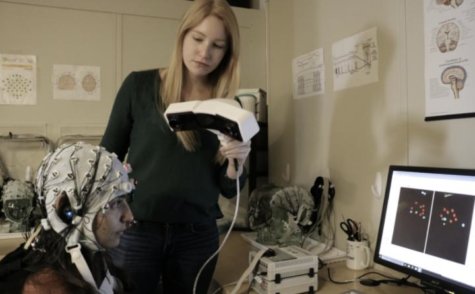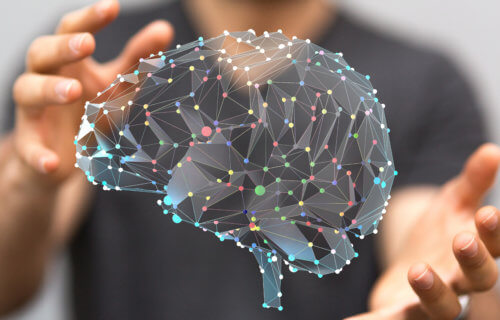BOSTON — Obsessive compulsive disorder can be disruptive to the lives of patients along with their family friends. But there may be a new, painless treatment that could put an end to the frustrating condition. According to new research, those who suffer from OCD or even related conditions like gambling or shopping addiction could potentially be cured by “zapping” their brains.
The non-invasive technique targets the orbitofrontal cortex, an area of gray matter that slows up in people with addictions. Neurons control behavior, and firing them up with small jolts of electricity stopped the research participants’ cravings.
Study corresponding author Dr. Robert Reinhart, an assistant professor of psychological and brain sciences at Boston University, believes it could treat a range of compulsive disorders. The uncontrollable urges can be life-threatening, leading to obesity, substance abuse, or financial ruin. “The results suggest it may be possible to non-invasively and electrically impede brain activity and behaviors that are undesirable to help people who are ‘stuck’ in a particular mode of functioning as is the case with obsessions and compulsions,” Reinhart says in a university release.

Called “high-definition transcranial alternating current stimulation” or HD-tACS, the new brain modulation involves placing electrodes on a patient’s scalp. They deliver tiny currents at specific frequencies to “re-tune” brainwaves. Reinhart’s team applied the therapy to 124 volunteers with varying levels of OCD over a period of five days. “It reduced obsessive-compulsive behaviors for up to three months — with the largest improvements seen in those with the most severe symptoms,” says Reinhart, per South West News Service.
The men and women receiving therapy performed better in a series of laboratory experiments that tested their self-control, such as resisting gambling, after undergoing the sessions. This opens the door to combating a host of conditions that affect around one in eight people on the planet.
“This new form of personalized brain modulation may be effective in producing long-lasting benefits in people experiencing distress due to actions such as compulsive eating, gambling, and shopping,” the authors write. “Nearly one billion people worldwide suffer from obsessive-compulsive behaviors, yet our mechanistic understanding of them is incomplete, and effective therapeutics unavailable. They are highly prevalent in the general population and cause significant distress to the individual.”
Mental health charities report that the number of people seeking help for obsessive-compulsive disorders has risen sharply since the beginning of the Covid-19 pandemic. Recent research has found Covid-19 can trigger and worsen obsessive-compulsive disorders. Stress and anxiety levels have increased among people, leading not only to psychological conditions, but also to increased risks of substance abuse.
Existing treatments such as antidepressants and other drugs produce disappointing outcomes and can cause side effects. “With non-invasive neuromodulation, interventions can be personalized according to individual neurophysiological dynamics,” the study explains. “The personalized neuromodulation design leverages the neuroplastic properties of the brain to produce long-lasting effects via chronic HD-tACS administration. Although we examined a sub-clinical population in the present study, the benefits observed provide motivation for further investigation of personalized neuromodulation as an experimental medicine for clinical obsessive-compulsive spectrum disorders.”
The study is published in the journal Nature Medicine.
SWNS writer Mark Waghorn contributed to this report.
